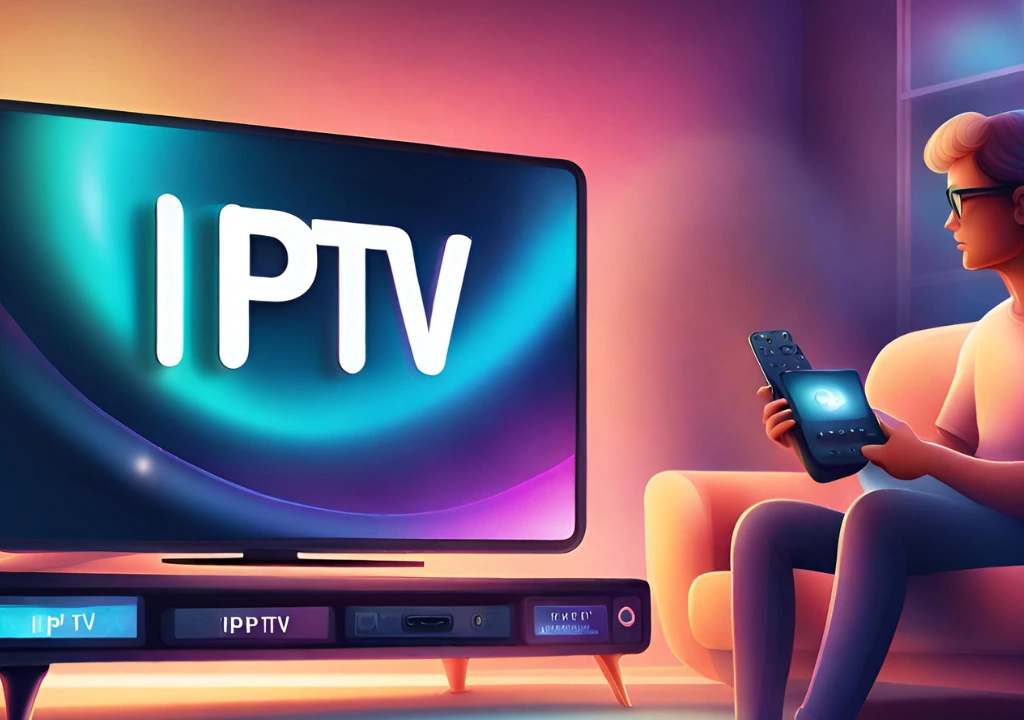
In the ever-evolving world of digital media, Internet Protocol Television (IPTV) has emerged as a revolutionary way to consume television content. But what is Internet Protocol Television, and how does it work? This article will explore the fundamentals of IPTV, its advantages, and why it is becoming a preferred choice for viewers worldwide.
Introduction to Internet Protocol Television
What is Internet Protocol Television?
Internet Protocol Television, commonly known as IPTV, is a system where television services are delivered using the Internet protocol suite over a packet-switched network such as the Internet, instead of being delivered through traditional terrestrial, satellite signal, and cable television formats. IPTV allows the streaming of media content directly from the source to the end-user’s device via the Internet.
How Does IPTV Work?
Unlike traditional broadcasting, IPTV uses the Internet to send television signals. This process involves several key components:
- Content Source: Television shows and movies are first encoded into a digital format.
- IPTV Provider: The content is then sent to an IPTV service provider who stores it on servers.
- Internet Connection: The IPTV provider sends the digital content through a high-speed internet connection.
- User Device: Users can access this content through a compatible device, such as a smart TV, computer, tablet, or smartphone.
Types of IPTV Services
IPTV services can be categorized into three main types:
- Live Television: Streaming live TV broadcasts as they happen. This is similar to watching traditional live television.
- Video on Demand (VOD): Users can choose and watch video content whenever they want. This is similar to streaming services like Netflix.
- Time-Shifted TV: Also known as catch-up TV, this allows users to watch previously broadcasted television shows and events at a later time.
Advantages of IPTV
Why Choose IPTV?
IPTV offers numerous advantages over traditional television delivery methods:
- On-Demand Content: Users have the flexibility to choose what they want to watch and when they want to watch it.
- High-Quality Streaming: IPTV services often provide high-definition (HD) and even 4K quality streaming.
- Interactive Features: IPTV allows for interactive features such as pausing live TV, rewinding, and accessing additional information about the content.
- Multi-Device Access: Users can watch IPTV content on various devices, including smart TVs, tablets, and smartphones.
Cost-Effective
IPTV can be more cost-effective than traditional cable or satellite services, offering similar or even superior content quality and variety at a lower price.
Customizable Content
With IPTV, users can select and subscribe to channels and services that they are interested in, rather than paying for a large bundle of channels that they may not watch.
The Technology Behind IPTV
Streaming Protocols
IPTV uses various streaming protocols to deliver content, including:
- RTSP (Real-Time Streaming Protocol): Allows for real-time control over streaming media.
- HTTP Live Streaming (HLS): Developed by Apple, used for distributing content without requiring special server software.
- MPEG-DASH (Dynamic Adaptive Streaming over HTTP): An adaptive bitrate streaming technology standard.
IPTV Infrastructure
A robust IPTV infrastructure includes:
- Content Delivery Networks (CDNs): Distribute content efficiently to users.
- Middleware: Software that manages user access, content distribution, and security.
- Set-Top Boxes: Devices that decode the IPTV signal so it can be displayed on a television screen.
Is IPTV Legal?
Regulatory Aspects
The legality of IPTV depends on the source of the content. Licensed IPTV services that have agreements with content owners are legal. However, some IPTV services distribute copyrighted content without proper licensing, which is illegal.
Choosing a Legal IPTV Service
To ensure you are using a legal IPTV service, consider the following tips:
- Check for Licensing: Ensure the IPTV provider has the necessary licenses for the content they are offering.
- Read Reviews: Look for user reviews and ratings to verify the legitimacy of the service.
- Official Website: Use services that have an official website and provide clear contact information.
Challenges and Future of IPTV
Technical Challenges
IPTV services face several technical challenges, including:
- Bandwidth Requirements: High-quality streaming requires significant bandwidth.
- Latency: Delays in streaming can affect the viewing experience.
- Network Reliability: A stable internet connection is essential for uninterrupted streaming.
Future Trends
The future of IPTV looks promising, with trends such as:
- 5G Integration: Faster and more reliable internet connections will enhance IPTV performance.
- AI and Machine Learning: These technologies will improve content recommendations and user experience.
- Expanded Content Libraries: IPTV providers are continually expanding their content offerings to attract more subscribers.
FAQs
What is Internet Protocol Television?
- Internet Protocol Television (IPTV) is a system where television services are delivered using the Internet protocol suite over a packet-switched network like the Internet.
How does IPTV differ from traditional TV?
- Unlike traditional TV, which uses satellite or cable, IPTV delivers content through the Internet, allowing for on-demand streaming and interactive features.
Is IPTV legal?
- IPTV is legal if the service provider has the necessary licenses for the content they distribute. It’s essential to choose reputable providers to ensure legality.
Can I use IPTV on any device?
- Yes, IPTV can be accessed on various devices, including smart TVs, computers, tablets, and smartphones.
What are the main types of IPTV services?
- The main types of IPTV services are live television, video on demand (VOD), and time-shifted TV (catch-up TV).
Why should I consider using IPTV?
- IPTV offers advantages such as on-demand content, high-quality streaming, interactive features, and cost-effectiveness.
Conclusion
Internet Protocol Television (IPTV) represents the future of television viewing, offering unparalleled flexibility, high-quality streaming, and a wide range of content. As technology continues to advance, IPTV is poised to become even more integral to how we consume media. By understanding what Internet Protocol Television is and how it works, you can make informed decisions about incorporating this innovative technology into your entertainment routine.
Add a Comment